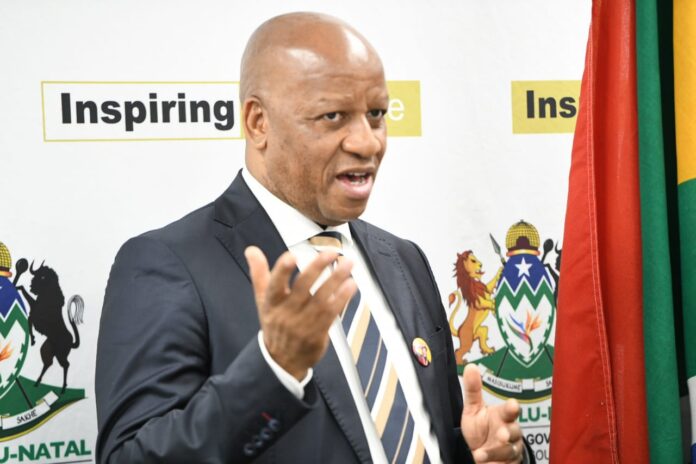KwaZulu-Natal province, which is struggling to shake off the stigma of being a place of violence, has recorded an increase in cases of rape and gender-based violence (GBV).
This was revealed by the premier of the province, Thamsanqa Ntuli, on Monday in Durban ahead of the commencement of the annual national 16 Days of Activism for No Violence Against Women and Children, which starts on Tuesday.
Ntuli revealed that the situation remains deeply concerning.
Premier calls for more action on scourge
“Rape cases have increased compared to the same period last year. This with seven districts reporting rises in sexual assaults against children under the age of 12. The districts of eThekwini, uMgungundlovu, and King Cetshwayo continue to be the province’s highest GBV hotspots.
“The demand for survivor support services reflects this escalation. Between July and September alone, 2, 013 survivors sought assistance at our Thuthuzela Care Centres. And in the preceding quarter, an alarming 65% of all GBV survivors were children,” Ntuli revealed.
In the face of this, Ntuli said his office is working in partnership with key departments and civil society organisations. And it continues to strengthen the institutional response to GBV and femicide.
“The provincial gender machinery is now active across all districts, with the remaining forums receiving targeted support to ensure full functionality. As part of our interventions, GBVF activists are now deployed at 184 police stations throughout KwaZulu-Natal. They provide survivor support, conduct follow-ups, and lead school-based prevention programmes,” Ntuli added.
Prevention, awareness campaigns intensified
Furthermore, Ntuli said prevention and awareness remain central to their efforts to fight the scourge.
As a result, to date, they have reached over 39, 000 community members through targeted campaigns. And 62, 859 learners have been engaged through child-protection programmes.
“More than 5, 000 men have participated in dialogues on positive masculinities. And 606 Traditional Leaders have been mobilised. While 278, 606 people have been reached through substance-abuse prevention initiatives.”



